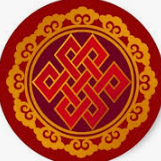Govt seeks international recognition of Thai herbs
-
Recently Browsing 0 members
- No registered users viewing this page.
-
Topics
-
Popular Contributors
-
Latest posts...
-
88
Do you still read books?
Oh please there's no need for age discrimination,im nearly 91 Getting back to the topic please ! I must say as I get towards my Centenary years im inclining more towards those AUDIBLE books , especially good when I'm on the treadmill with my walking frame listening to a book.... Still I have a hard time finding a good audible book website -
19
Trump Questions Timing of Biden's Cancer Disclosure: “Why Did It Take So Long?”
You trolls certainly are excited -
1
-
1
Renewal of non o based on retirement
Is that a report or question. I deal with CW for extension based on retirement using money in bank method. I provide a 12 month bank statement. The bank (Kasikorn) issues it on the spot. 200b Immigration will accept a bank statement up to 7 days old. BBL folk need to wait days for the statement -
2,661
Thai tax tangle: Expats warned of new rules on overseas income
Just so I'm clear on things. Aren't we supposed to self-determine whether the monies we remit are assessable or not? And, if we remit only non-assessable monies such as; US Social Security or pre-2024 monies, then we do not need to file a tax return or pay taxes on those monies. Is that correct? Also, if one is a LTR-WP visa holder, then all monies remitted are supposed to be exempt, so one should not need to file a tax return or pay tax on any monies remitted. Is that correct? It appears some people are saying one should file a tax return and report all monies remitted, even if they are non-assessable. Is that correct? -
9
Seeking recommendations for Bangkok Agencies for LTR Appliciation - Wealthy Pensioner
Yes, he says the agencies guarantee success but I went through the process, had one or two stumbling steps but other LTR winners passed info to me that cleared it up in my mind as at first I didn't understand why the BOI wouldn't accept something but then once I got other notes, it was just too easy for me - total time frm start to receipt of visa less than 3 weeks. Time on computer very few hours if that many! Have gone through the 1-year check in (to provide address) can be done by agent or anyone you want but I went to BOI immigration and it took less than 10 minutes total time there! too easy again.
-
-
Popular in The Pub
-






.thumb.jpeg.d2d19a66404642fd9ff62d6262fd153e.jpeg)



Recommended Posts
Create an account or sign in to comment
You need to be a member in order to leave a comment
Create an account
Sign up for a new account in our community. It's easy!
Register a new accountSign in
Already have an account? Sign in here.
Sign In Now